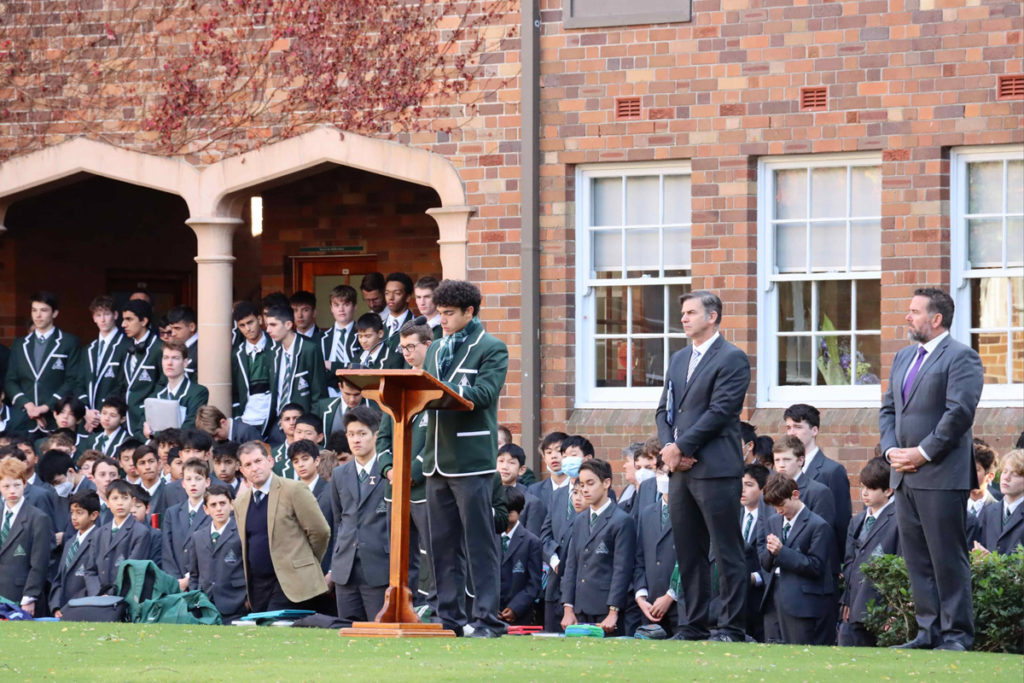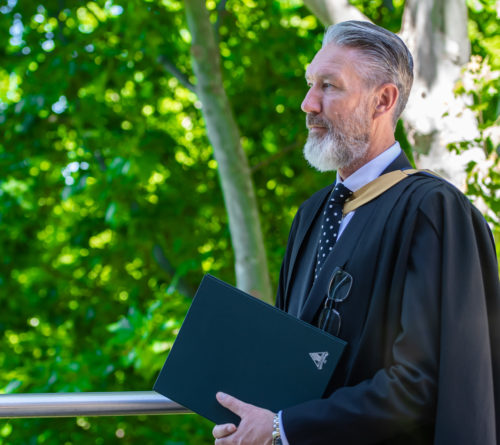From the Deputy Head Master – Summer Hill

This week, to mark Reconciliation Week 2022, Michael King 11Ta spoke with your sons and my colleagues at Quad Assembly. A young Bundjalung man whose father, grandparents and ancestors came from the North Coast of New South Wales, his words speak for themselves.
National Reconciliation Week is a time for all Australians to learn about our shared histories, cultures, and achievements, and to explore how each of us can contribute to achieving reconciliation in Australia. Last year, Australians were encouraged to take action, not just in Reconciliation Week, but every week of the year, and this year’s theme is “Be Brave. Make Change.” This is a challenge to all Australians— individuals, families, communities, organisations, schools including ours, and governments—to tackle the unfinished business of reconciliation.
When Mr Barr asked me to prepare this speech a couple of weeks ago, I won’t lie, I was a bit unsure about what I could say. How can you encourage teenage boys to be brave and make change, to pave the way for reconciliation? I am not even sure we all understand why First Nations People have campaigned so long for reconciliation and why it is so important?
So, to begin, I would like to clarify that reconciliation is, at its heart, the strengthening of relationships between Aboriginal and Torres Strait Islander Australians and non-Indigenous Australians, and I believe there are three very concrete things we can do to help bring about reconciliation. We must tell the truth about racism, we must stand up and fight for justice, and we must own our history.
Telling the truth about racism is one way even the youngest boy in Year 7 can be brave and make a change. How often in a day do we hear racist slurs? Maybe in the playground. Maybe in public. Maybe on the sporting field. It may be intended as a joke or it may be the result of frustration. I have heard these comments from time to time and I’m sure you have too. Although in most cases it isn’t intentional, it isn’t right. So, my first encouragement is to urge you to call out the casual and unthinking, everyday racism that remains in Australia in 2022.
It is also important to be brave and stand up for justice. Unfair laws and policies are still in place that disproportionately target Aboriginal and Torres Strait Islander People, including laws that allow children as young as 10 to be sent to prison, and mandatory sentencing. I understand that this is a big thing to ask young people to take on, but it will not be long before you can vote, and it will not be long ‘til you can help shape the Australia you will leave to your children. Use your privilege and your education to make justice for Aboriginal and Torres Strait Islander Peoples a priority. We can, and we must, challenge our leaders to take action on justice for First Nations Peoples.
Finally, it is important that we own our history. We all have our own story, but for First Nations Peoples, our history has been hidden, devalued, and taken from us. While there have been efforts to include Indigenous history in school curricula, it is only through an acknowledgement of the past that any commitment to reconciliation can be achieved. As I look around this Quad, it is easy to see that we are all from different backgrounds and parts of the world, and it is important to note not only your history, but others’ as well. My final encouragement is to be open to hearing the uncomfortable truths about the unjust treatment of Australia’s First Nations People over the last 200 years or so. Accepting these truths as part of our history and a desire to strive towards making changes are key elements of moving towards true reconciliation.
In acknowledgement of Michael’s encouragement that it is important that we own our history as a crucial step in the reconciliation process, at Trinity Grammar School we also marked the significance of today in the history of Australia.
The 3rd of June 2022 is the 30th Anniversary of the historic 1992 legal case that marked the first formal recognition of Indigenous Land Rights in Australia. The High Court of Australia acknowledged Aboriginal and Torres Strait Islander People’s unique connection with the land. It was this decision of the High Court that overturned the legal doctrine of terra nullius (‘land belonging to nothing, no one’) and acknowledged the history dispossession in Australia and altered one of the foundations of Australian law.
The High Court decision has become known simply as the Mabo Decision, honouring Koiki ‘Eddie’ Mabo, a Meriam man from Mer (which we know today as Murray Island) in the Torres Strait, who challenged the Australian legal system and fought for, and ultimately won, recognition of the rights of Aboriginal and Torres Strait Islander Peoples as the traditional owners of their land.
As we end our acknowledgement of Reconciliation Week 2022 in tomorrow’s round of fixtures against Barker College, we remember that we owe Koiki Mabo, the Wik People, the Yolngu People, who first petitioned the Federal Government for land rights in 1966, and Gurindji man, Vincent Lingiari, among many others, a debt of gratitude. Fifty years ago, in 1972, Labor leader and future Prime Minister, Gough Whitlam said at the launch of the election campaign; We will legislate to give Aboriginal land rights, because all of us as Australians are diminished while (Aboriginal and Torres Strait Islanders) are denied their rightful place in this nation. As Michael reminded us yesterday, we still have some way to go and, at Trinity Grammar School, we believe we all have a role to play.
Bradley Barr | Deputy Head Master – Summer Hill
















